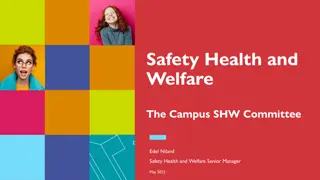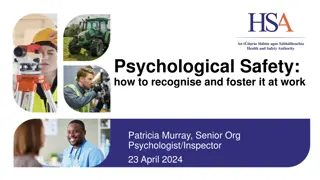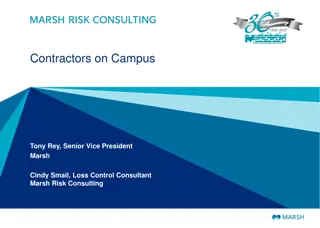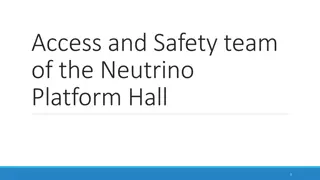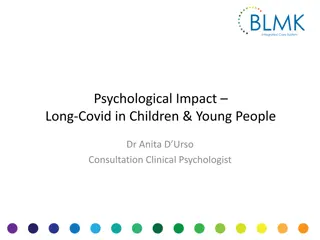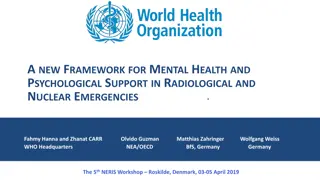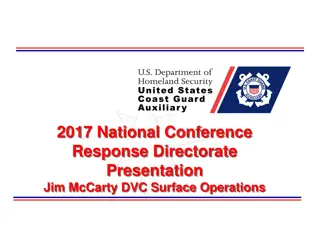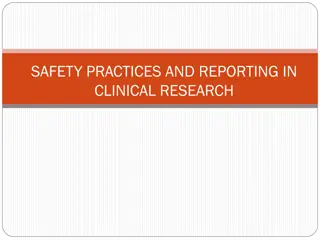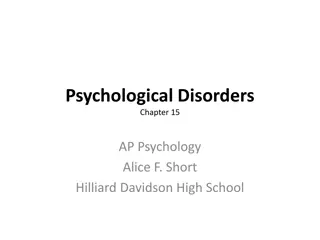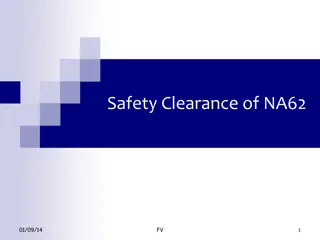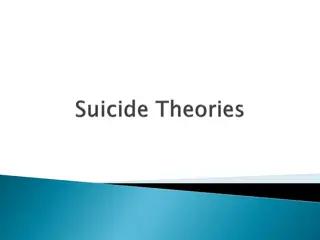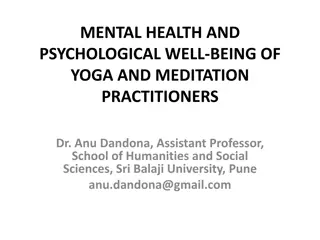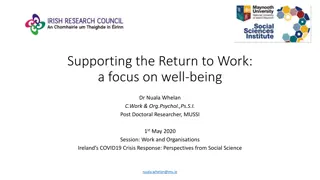Responsibilities in Ensuring Psychological Health and Safety
The primary duty of care under the WHS Act 2011 encompasses physical and psychological health. Non-compliance can lead to significant penalties, including fines and imprisonment. To address psychological impacts, implementing strategies like ALGEE from Mental Health First Aid Australia can help reduce and address psychological injuries effectively. Active listening and support techniques are crucial in assisting individuals who may be facing mental health challenges in the workplace.
Download Presentation

Please find below an Image/Link to download the presentation.
The content on the website is provided AS IS for your information and personal use only. It may not be sold, licensed, or shared on other websites without obtaining consent from the author.If you encounter any issues during the download, it is possible that the publisher has removed the file from their server.
You are allowed to download the files provided on this website for personal or commercial use, subject to the condition that they are used lawfully. All files are the property of their respective owners.
The content on the website is provided AS IS for your information and personal use only. It may not be sold, licensed, or shared on other websites without obtaining consent from the author.
E N D
Presentation Transcript
Primary Duty of Care pertaining to psychological & psychosocial factors The WHS Act 2011 defines health as: Physical and psychological health This means: The Regulator (SafeWork) will review all hazards and incidences pertaining to BOTH physical and psychological health. University members must be diligent in overseeing health and wellbeing for staff and peers. Both physical and psychological.
What happens when the WHS Act 2011 is not adhered to? The Work Health and Safety Act 2011 (the "WHS Act") aims to protect workers against harm to their health safety or welfare through the elimination or minimisation of risks in the workplace. Failure to comply with the Act can result in fines, imprisonment or both. Offences under the Act are penalised under 3 different categories as further described below: 1. Category 1 - Reckless Conduct Under the Act, the penalty for a category 1 offence committed by an individual is $300,000 or 5 years imprisonment or both. 2. Category 2 - Failure to comply with health and safety duty Under the Act, the penalty for a category 2 offence committed by an individual is $150,000. 3. Category 3 - Failure to comply with health and safety duty Under the Act, the penalty for a category 3 offence committed by an individual is $50,000.
What can we do to reduce/replace/minimise the psychological impacts/factors? In the past year, WSU has recorded an increase of psychological injuries. Further to this, The Mental Health First Aid Australia Foundation has provided the following acronym: ALGEE A Approach the person, assess and assist with any crisis L Listen and communicate non judgementally G- Give support and information E Encourage the person to get appropriate professional help E Encourage other supports
Listening and assistive techniques It is important to understand, however it is also very important for yourself to demonstrate that you are listening and advise that you are willing to assist. The following presents a few key things that you could implement if a situation ever presents itself to you: 1. Allow the person to speak; the person confiding in you has taken a lot of courage to advise of their situation. It can be perceived that you are not listening if you do not allow them to finish their sentence 2. Acknowledge their concerns; when they have finished with their statement, take the time to let the person know that you have heard them. Examples include I understand , I can imagine what that may feel like for you . 3. Advise of what supports there are; it is ok to not know how to help. However it is important to advise the person that there are supports that are available. 4. Ask; after they have let you know what is impacting them, ask them if they are ok and if they have considered reaching out for professional help. 5. Action and follow up; It is very important to not only guide the individual to professional help, but it is also very crucial that they understand that you are there for the journey. This can include wrapping up the conversation by letting them know that they will be checked on in a reasonable time frame. Example: if you are ok with it, I will check in on you tomorrow to see how you are going. Is that ok?
Return to work plans and its importance Another strategy that the university employs are the usage of Return To Work Plans (RTWP). Essentially these plans are formulated with a university member and their supervisor to assist their situation and the workplace. The University is committed to its Diversity and Inclusion and where possible RTW Plans should be utilised as soon as possible. Return to work plans are important because it advises the individual that they are: Being looked after in the workplace - a lot of fear to bringing up mental incapacity is overshadowed by the fear of what the workplace will think Being heard in most instances, the individual is told to wait . Having a RTW plan assists in the sense that whilst they are waiting for assistance or for medical treatment, there is a procedure in place that they are able to have some sort of oversight and provide the feeling that they are being heard. Being actioned Time is perceived differently to someone who is undergoing mental incapacity. 1 day could feel like 1 week to some. Following ALGEE and implementing or giving the option of a RTW plan ensures that the individual that you are assisting by taking action.
Resources: Head to Health for advice, assessment and referral into local mental health services Beyond Blue (anyone feeling depressed or anxious) Black Dog Institute (people affected by mood disorders) Headspace (online tools for young people) MensLine Australia - a telephone and online counselling service offering support for Australian men anywhere, anytime. Lifeline (anyone having a personal crisis) EAP: WHS&W resources on EAP Further to that, if you require any further assistance on counselling/training or if you want to have a private and confidential chat about any matters please contact the Injury Management Coordinator on 9852 5179 or email: WHS@westernsydney.edu.au




